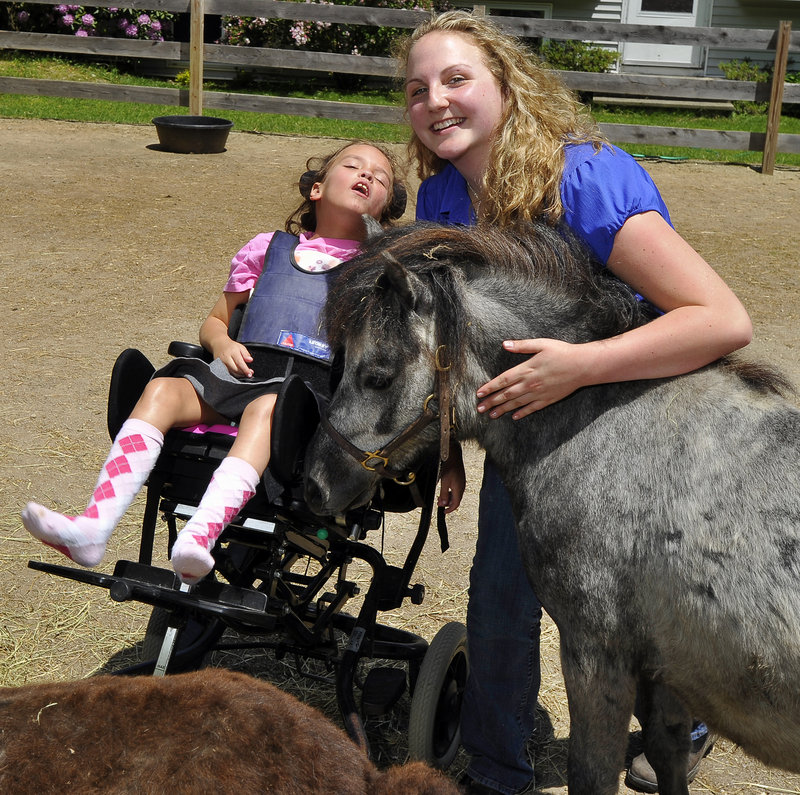CUMBERLAND – Leah Twomey has seen the magic happen again and again, when a child with severe mental and physical disabilities responds to the velvet nuzzle of a Shetland pony.
“It awakens children in a way that other therapies just can’t,” Twomey said. “The ponies come up and put their heads in their laps. They understand when a child needs them.”
Twomey, a 2011 graduate of Greely High School, is junior director of Maine Personal Ponies, an organization that she and her mother, Deb, started running two years ago.
The younger Twomey hosts children’s visits with ponies at the family’s home on Blanchard Road, takes the ponies to community events and recruits volunteers to help out. She is a member of the National Honor Society and an International Baccalaureate scholar who excelled in drama and chorus and fought discrimination and bullying through the school’s gay-straight alliance.
“Leah is a dedicated, caring person who makes people around her feel safe and welcome,” said Kim MacDonald, a French teacher at Greely. “She’s also a well-rounded, hard working person who sets high standards for herself.”
But Twomey’s main passion is Personal Ponies, an international nonprofit operated by volunteers. It gives children with disabilities an opportunity to interact with and care for the small ponies from the United Kingdom.
The Twomeys became interested in Personal Ponies after seeing how Leah’s five younger brothers and sisters, all of whom are adopted and have various disabilities, responded to the family’s horses. Leah, the youngest of Deb Twomey’s six biological children, grew up riding horses and wanted to share the experience with her siblings.
“They were interested in the horses, but all they could do was watch them because of their size,” Twomey said.
The children involved in Personal Ponies have challenges ranging from autism to cerebral palsy. The ponies must be trained to adapt to different situations and be around children in wheelchairs.
The children do what they can with the ponies, from patting them, to brushing them, to leading them around the paddock. The interactions help the children develop verbal, physical, social and emotional skills.
“Whenever I read to the kids, the ponies all come and sniff the book and gather around,” Twomey said. “Each pony has its own personality and way of communicating with the kids. Some kids are disappointed at first because they can’t ride them, but they soon find out it’s not the most important thing.”
This summer, Leah Twomey plans to write a guidebook for Maine Personal Ponies volunteers.
In the fall, she will attend the University of Rochester in New York, where she plans to study biogenetics.
Send questions/comments to the editors.


